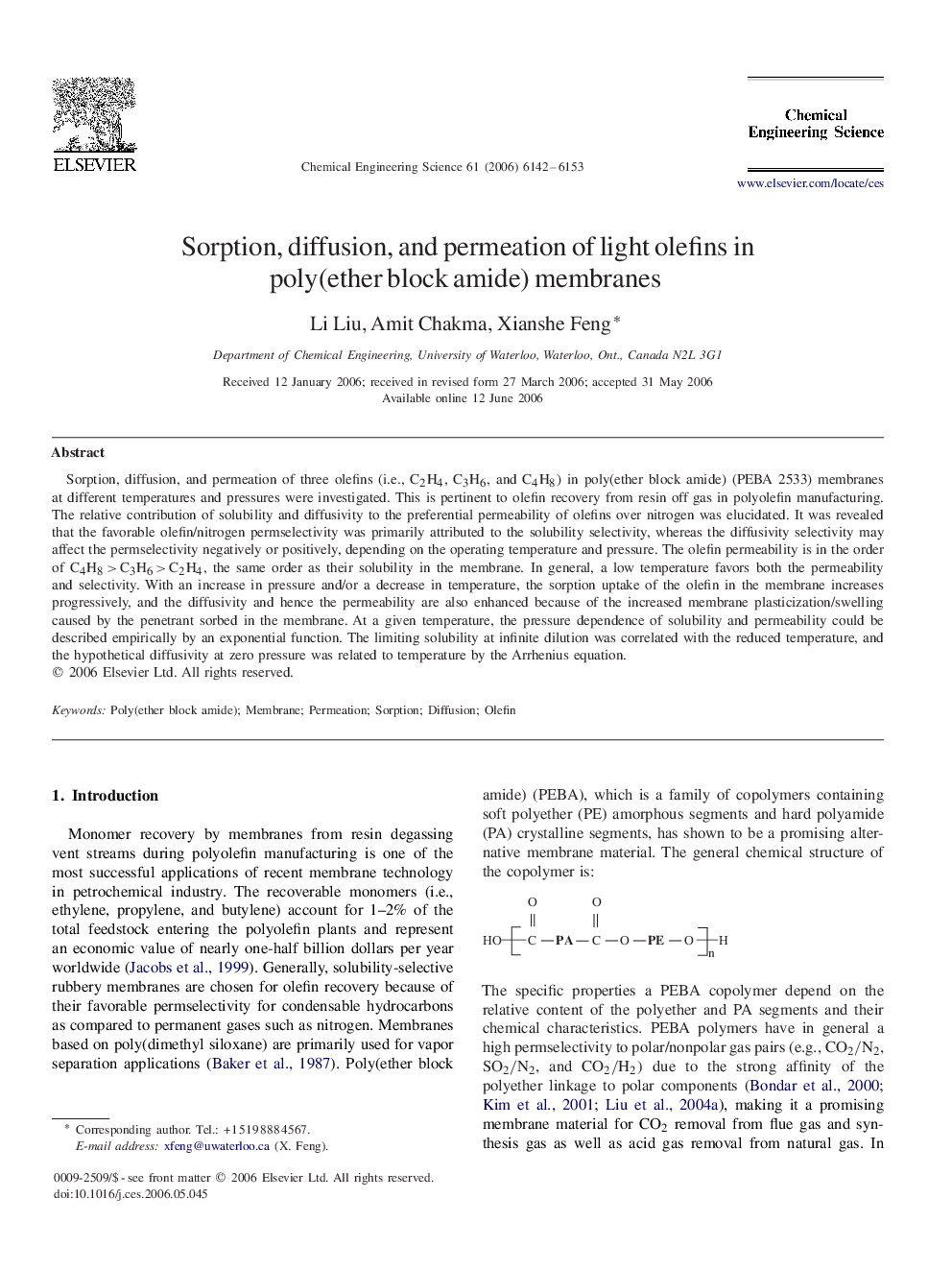| Article ID | Journal | Published Year | Pages | File Type |
|---|---|---|---|---|
| 159665 | Chemical Engineering Science | 2006 | 12 Pages |
Sorption, diffusion, and permeation of three olefins (i.e., C2H4C2H4, C3H6C3H6, and C4H8)C4H8) in poly(ether block amide) (PEBA 2533) membranes at different temperatures and pressures were investigated. This is pertinent to olefin recovery from resin off gas in polyolefin manufacturing. The relative contribution of solubility and diffusivity to the preferential permeability of olefins over nitrogen was elucidated. It was revealed that the favorable olefin/nitrogen permselectivity was primarily attributed to the solubility selectivity, whereas the diffusivity selectivity may affect the permselectivity negatively or positively, depending on the operating temperature and pressure. The olefin permeability is in the order of C4H8>C3H6>C2H4C4H8>C3H6>C2H4, the same order as their solubility in the membrane. In general, a low temperature favors both the permeability and selectivity. With an increase in pressure and/or a decrease in temperature, the sorption uptake of the olefin in the membrane increases progressively, and the diffusivity and hence the permeability are also enhanced because of the increased membrane plasticization/swelling caused by the penetrant sorbed in the membrane. At a given temperature, the pressure dependence of solubility and permeability could be described empirically by an exponential function. The limiting solubility at infinite dilution was correlated with the reduced temperature, and the hypothetical diffusivity at zero pressure was related to temperature by the Arrhenius equation.
